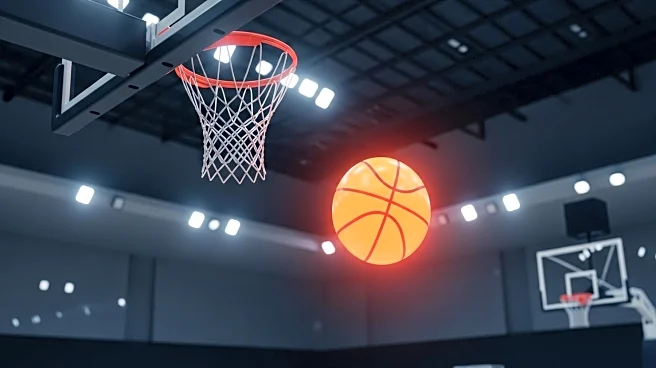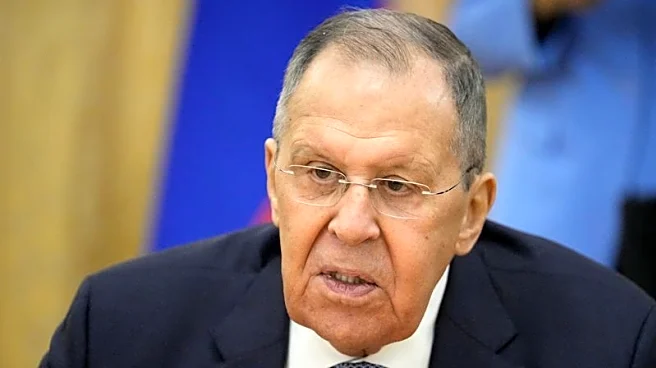What is the story about?
What's Happening?
The New York Liberty concluded their season with a 79-73 loss to the Phoenix Mercury in the decisive game of the WNBA playoffs' opening round. Despite a strong effort, the Liberty struggled with injuries throughout the season, including the absence of key player Betnijah Laney-Hamilton. In the final game, Leonie Fiebich was briefly sidelined due to an injury but returned to play. The Liberty's performance was hindered by self-inflicted errors, such as missed rebounds and poor shooting, which allowed the Mercury to capitalize and maintain their lead. Despite notable performances from players like Sabrina Ionescu and Breanna Stewart, the Liberty could not overcome the deficit.
Why It's Important?
The Liberty's loss highlights the challenges faced by teams dealing with injuries and the importance of depth in a roster. The team's inability to adjust and expand their rotation during critical moments underscores the need for strategic planning and resilience in professional sports. The outcome also emphasizes the competitive nature of the WNBA playoffs, where even minor errors can have significant consequences. The Liberty's season serves as a reminder of the unpredictability of sports and the impact of physical and mental endurance on a team's success.
What's Next?
Looking ahead, the Liberty will focus on rebuilding and preparing for the next season. Head coach Sandy Brondello expressed pride in the team's effort and sees the loss as a motivational tool for future improvement. Key players like Breanna Stewart have committed to returning, providing a foundation for the team's future endeavors. The Liberty will likely analyze their performance to address weaknesses and enhance their strategy, aiming to overcome the adversities faced this season.
Beyond the Headlines
The Liberty's season-ending loss also brings attention to the broader issues of player health and injury management in professional sports. The team's experience may prompt discussions on improving medical support and training regimens to prevent long-term injuries. Additionally, the emotional and psychological aspects of dealing with setbacks could lead to increased focus on mental health resources for athletes.
















